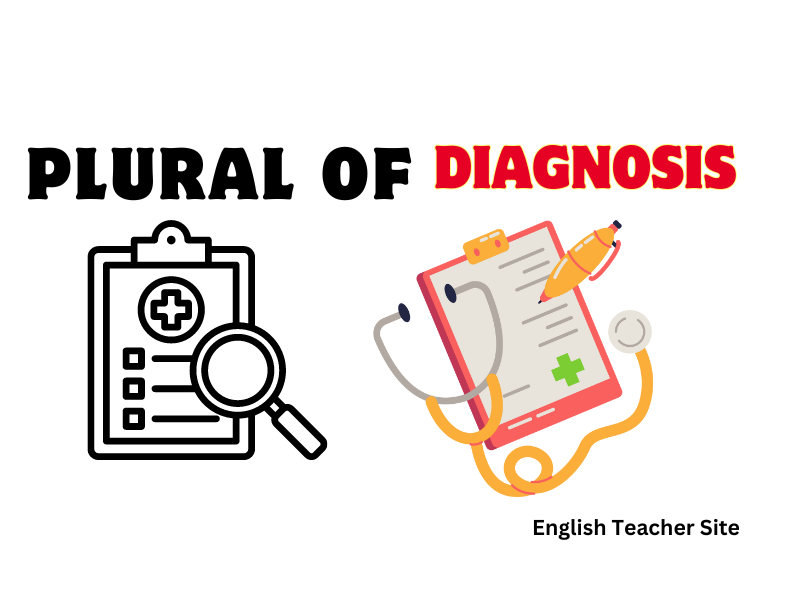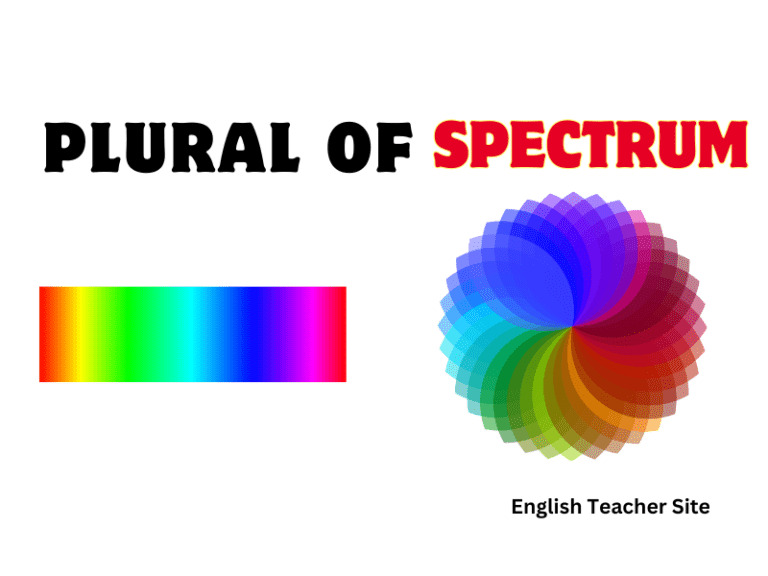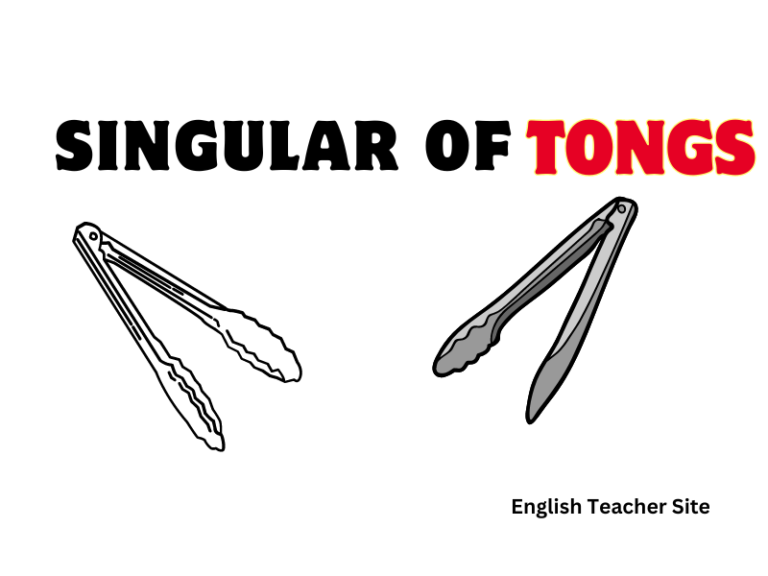What’s the Plural of Diagnosis: Understanding Medical Terminology

- The plural of “diagnosis” follows Greek-origin rules, changing ‘-is’ to ‘-es’ to become “diagnoses.”
- Correctly applying “diagnosis” and “diagnoses” is vital for clear communication in medical and scientific contexts.
- “Diagnosis” is used for a single case; “diagnoses” is used for multiple cases.
When using the term in sentences, “diagnosis” refers to the identification of a disease or condition, while “diagnoses” is applied when referring to several determinations. It is important to use these terms correctly to maintain the accuracy and professionalism of medical and scientific discussions. The distinction also allows for precision in everyday language when exploring the causes or nature of various situations or conditions.
What’s the Plural of Diagnosis?
Singular to Plural Transformation:
The word “diagnosis” follows a pattern typical to words of Greek origin, transforming from -is to -es in its plural form.
| Singular Form | Plural Form |
|---|---|
| diagnosis | diagnoses |
Usage Examples:
The correct usage in sentence structure can be illustrated through the following examples:
- A single observation: “The doctor’s diagnosis was confirmed with further tests.”
- Multiple observations: “After reviewing several cases, the different diagnoses pointed towards an environmental cause.”
Grammar Rules:
There are standard rules when pluralizing nouns in English:
- Most nouns simply add an -s or -es.
- Some nouns undergo more significant changes, often due to their Latin or Greek roots.
Possessive Forms Changes:
| Singular Possessive | Plural Possessive |
|---|---|
| diagnosis’s | diagnoses’ |
- Singular: One diagnosis pertains to a singular assessment.
- Plural: Multiple assessments require the use of diagnoses.
English and Greek Nouns
Regular English nouns typically form their plural by simply adding “-s” or “-es.” For example:
- Cat becomes cats
- Box becomes boxes
- Church becomes churches
However, Greek-origin nouns obey different rules due to their etymology. They often change their endings in the plural form, which might seem irregular to the pattern of English plurals.
Examples of Greek-origin nouns include:
- Basis becomes bases
- Crisis becomes crises
- Thesis becomes theses
The word “diagnosis” is another such noun with a Greek origin.
| Singular | Plural |
|---|---|
| Diagnosis | Diagnoses |
- Singular: Diagnosis (pronounced die-ag-nosis)
- Plural: Diagnoses (pronounced die-ag-no-sees)
Examples of “Diagnosis” in Sentences
| Singular Usage | Plural Usage |
|---|---|
| The doctor made a diagnosis based on the patient’s symptoms. | After reviewing multiple patients, the doctor had several diagnoses to consider. |
| A timely diagnosis can significantly improve the treatment outcome. | The medical conference discussed numerous interesting diagnoses. |
Consider these additional examples:
- The specialist provided a diagnosis after the examination.
- In medical journals, one often reads about various new diagnoses.
Common Errors:
Avoid common mistakes such as using “diagnosises” or “diagnosi” which are incorrect forms of the word.
| Incorrect | Correct |
|---|---|
| The lab results arrived, and the doctor has three new diagnosises. | The lab results arrived, and the doctor has three new diagnoses. |
| John received a second diagnosi for his condition. | John received a second diagnosis for his condition. |
Key Takeaways for usage:
- “Diagnosis” is the singular term.
- “Diagnoses” is the plural term.
- Replace “is” with “es” for the plural form.
- Do not use: diagnosises, diagnosies, diagnosi.
- Correct pluralization: diagnoses.
Examples of “Diagnoses” in Sentences
Here are examples that demonstrate the use of “diagnoses” in sentences:
Single vs. Plural:
| Singular: Diagnosis | Plural: Diagnoses |
|---|---|
| The doctor made a diagnosis after reviewing the patient’s symptoms. | The panel of experts reviewed several diagnoses before making a decision. |
Contextual Use:
- In medical journals, diagnoses are often listed to compare symptoms and treatments across different cases.
- Multiple diagnoses can complicate a patient’s treatment plan.
Boldly Speaking:
- The clinic specializes in accurate and swift diagnoses of tropical diseases.
- It’s important that she shares her prior diagnoses with the specialist for a comprehensive evaluation.
In Comparison:
- A disease’s diagnosis might be straightforward, whereas multiple diagnoses require extensive investigation.
Synonyms for “Diagnosis”
Here’s a curated list that may aid in diversifying language in a medical or analytical context.
Synonyms Related to Medical Diagnosis:
| Synonym | Context of Use |
|---|---|
| Analysis | Used in discussing the examination of a condition’s nature |
| Assessment | Refers to the evaluation or estimation of a disease |
| Determination | Implies a firm decision about an illness |
| Identification | Denotes the recognition of a disease’s characteristics |
Synonyms Related to Analytical Diagnosis:
| Synonym | Context of Use |
|---|---|
| Investigation | Used when examining something methodically |
| Evaluation | Concerns assessing something’s value or nature |
| Conclusion | The result or decision reached through analysis |
| Judgement | Reflects careful consideration to form an opinion or decide |
In a clinical context, one might use the term evaluation to discuss the process leading up to a diagnosis, whereas an assessment might refer to both the process and its end product.
- Investigation and analysis are often employed within diagnostic processes that involve detailed examination and systematic inquiry.
- In practice, a conclusion or judgement may reflect the ultimate decision or understanding reached after a thorough diagnostic process.
- Greek percentage in English
- Wikipedia: medical diagnosis
- Diagnosis, Oxford Learner’s Dictionary.
- Harper, Douglas. “Etymology of diagnosis.” Online Etymology Dictionary, https://www.etymonline.com/word/diagnosis.
My name is Khamis Maiouf. I am the creator of the English Teacher Site, dedicated to providing valuable resources and insights for students around the world. With a passion for education and a commitment to helping students enhance their skills, I aim to make English teaching more effective and enjoyable for both educators and students.






